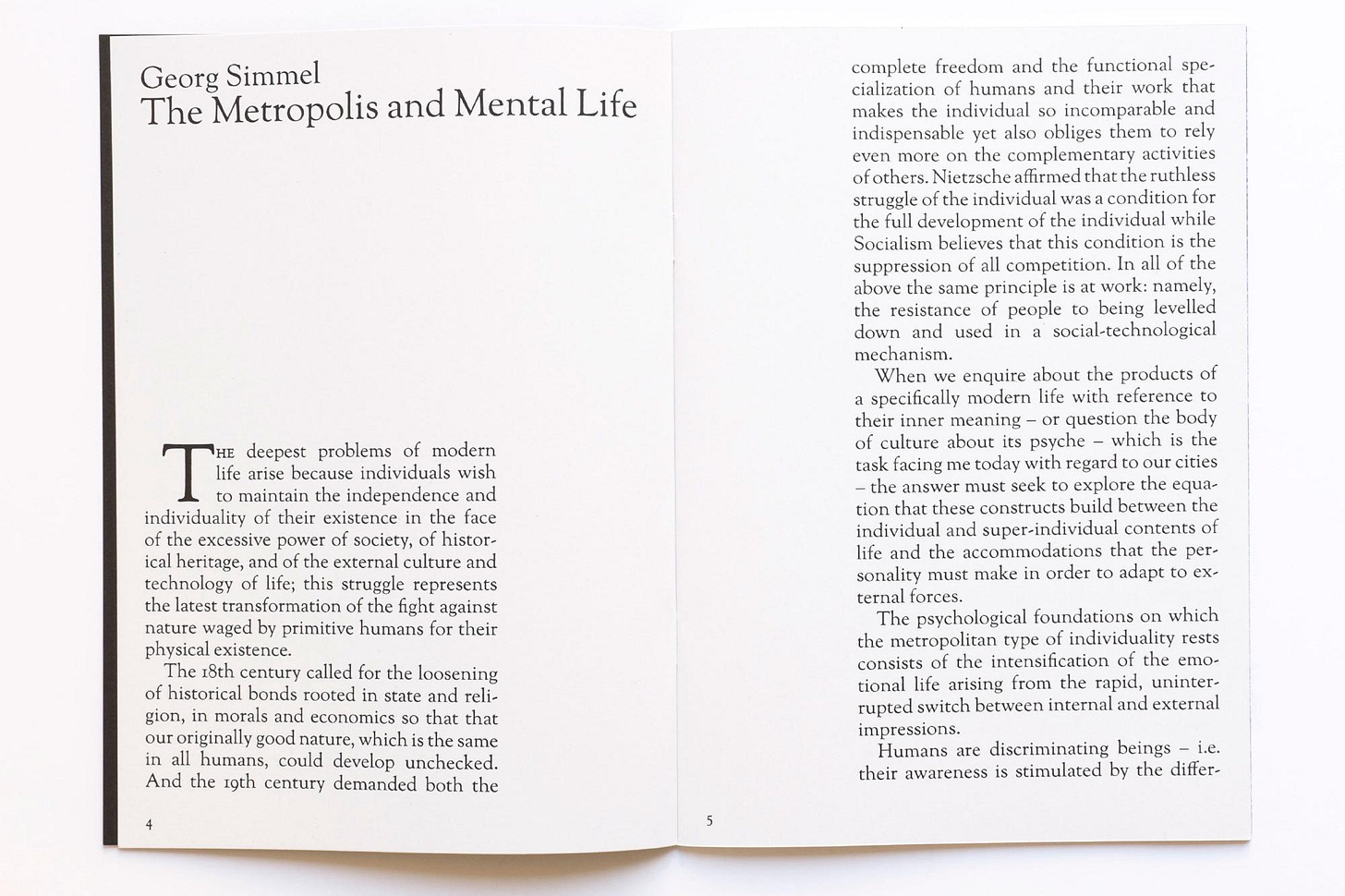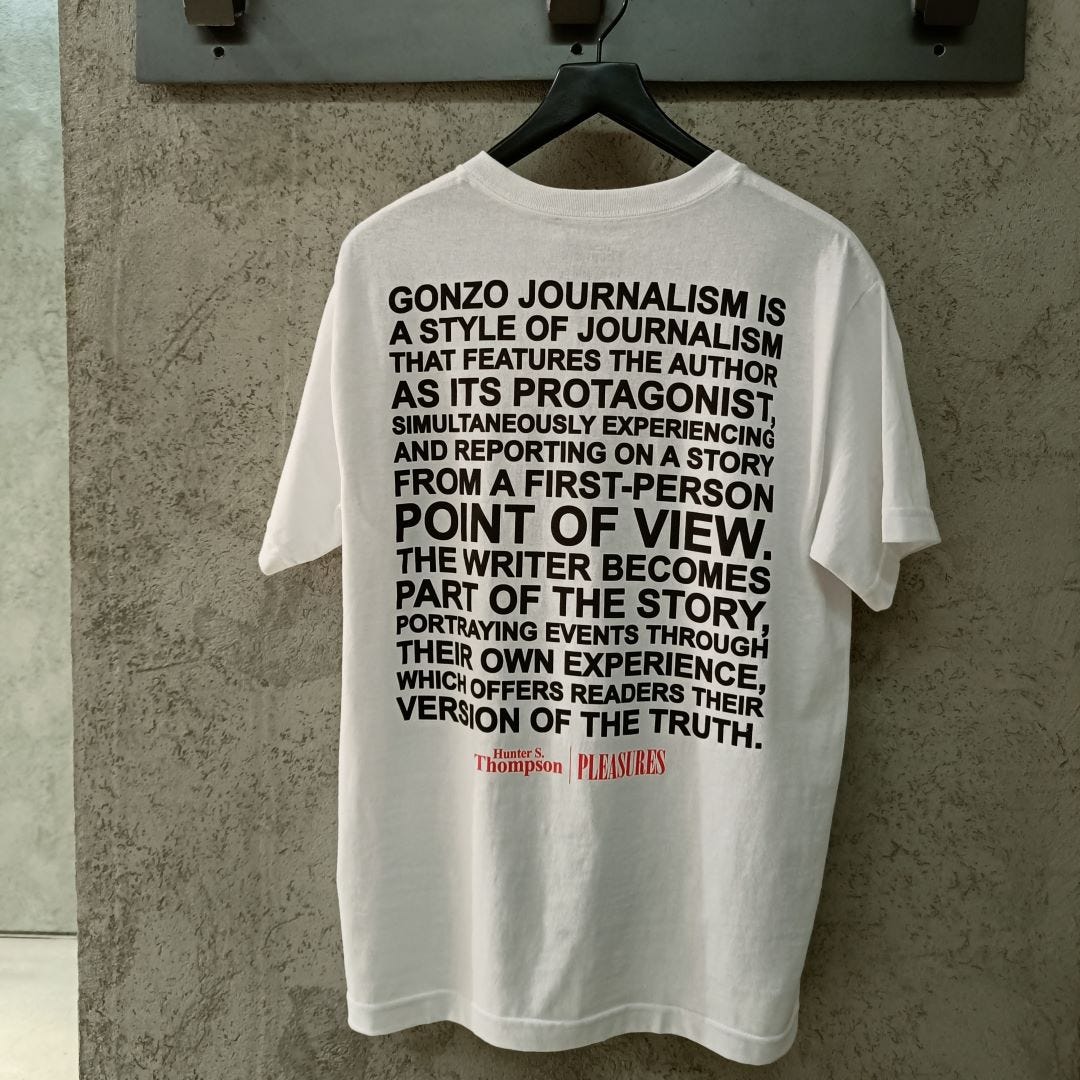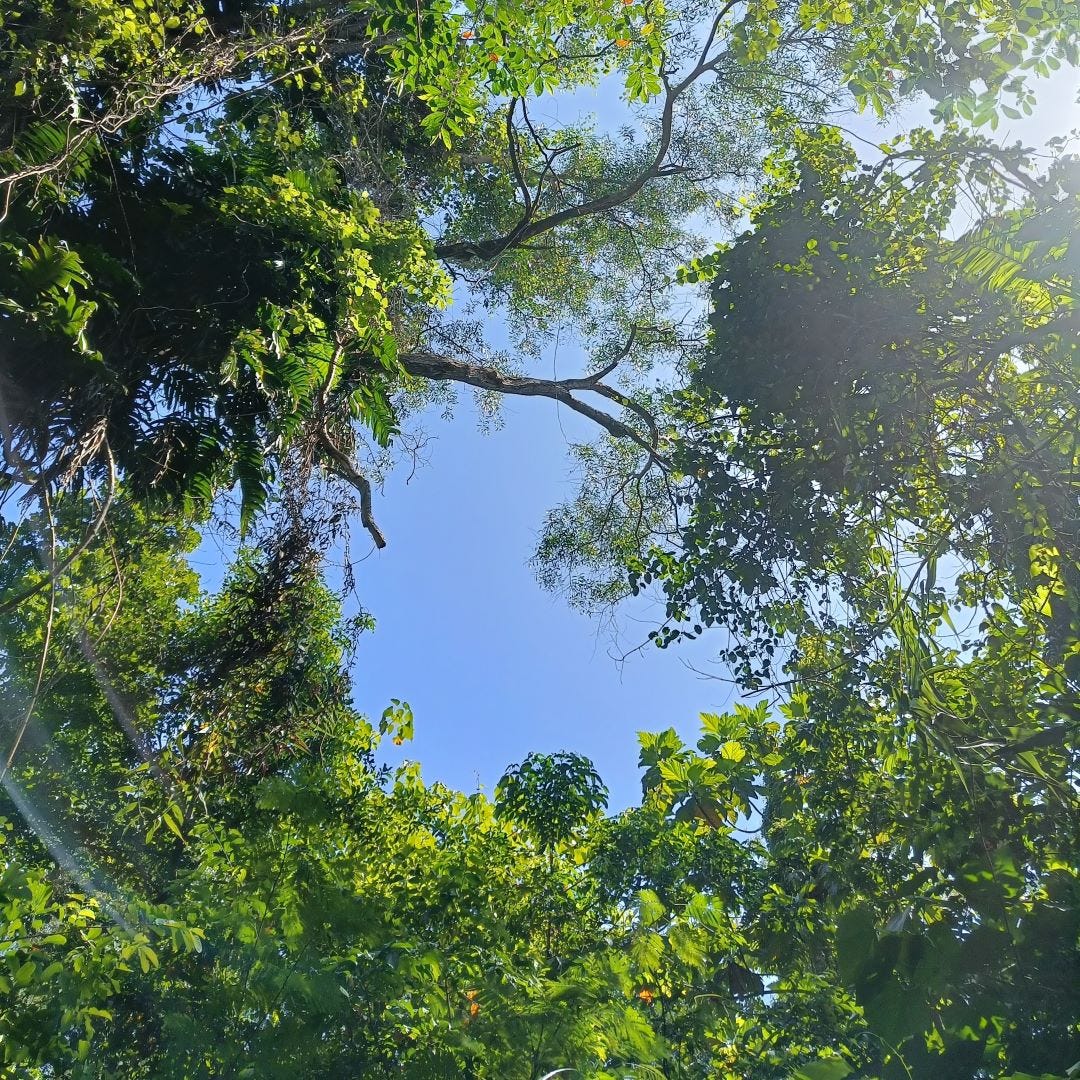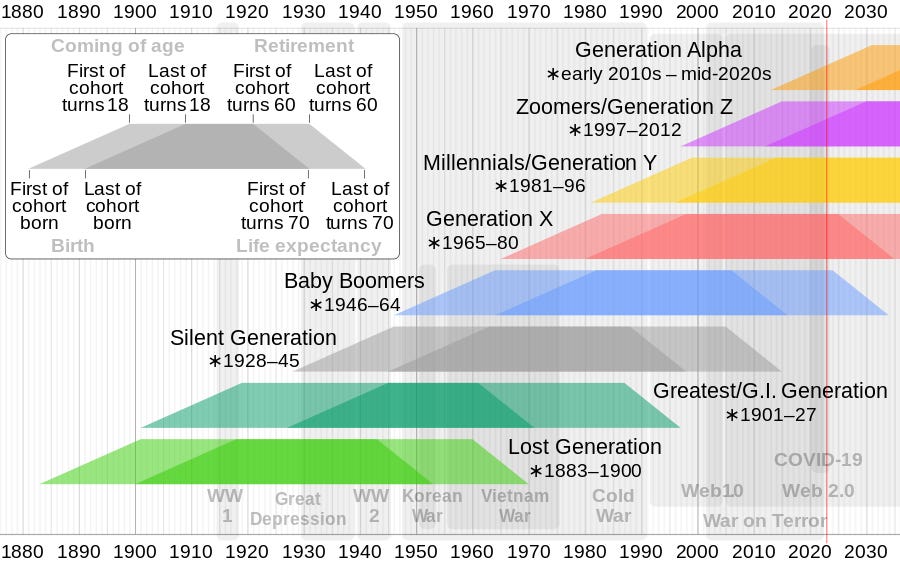Can you read my mind?
The Cultural Learnings newsletter returns as an exercise in openness, with a new manifesto.
Cultural Learnings provides cultural learnings to further your cultural learning. You can support it by subscribing to this newsletter, sharing it with your friends, emailing your thoughts, or answering this survey.
Don’t forget to visit the Cultural Learnings newsletter and radio archive. For a better reading experience, download the Substack Reader app on iOS or Android.
They say restraint helps with creativity, and this newsletter has been a practice of parameters. Always start with a question, I would say, and always attempt to answer it.
As a journalist, I commonly structure entire pieces of writing this way, preceded by periods of research. “Answering the question” prevents tangents that dangerously tread self-indulgence, and every written paragraph brings me closer to some understanding based on reliable evidence.
But there are times I don’t want to assume this convergent way of thinking. Sometimes, I’m not an impartial journalist because, in my personal life, I’m genuinely angry about an issue, or my opinions are combed by the bias of an endless scroll; or the evidence only proved reliable for a small group of people. “Big” questions were relevant in university, when I started this newsletter, but day-to-day life doesn’t function in meta narratives. Thoughts are boundless, triggered by disparate mental events that don’t make sense until it does. Maybe that’s why the word “epiphany,” from the Ancient Greek word ἐπιφάνεια (epipháneia), contains root meanings such as “I come into view” or “I appear.” Our striking realizations shine and dim. Thoughts converge, but never reach an end. We simply cycle through light and blindness.
As someone whose practice has largely operated on structure, I’m reckoning with a malleability that feels cripplingly infinite. I think about how long it’s been since I’ve written anything that has “surpassed” me, and how my time and energy call me to places that are, perhaps, considered frivolous – like in an elaborated tweet or Instagram caption, triggered by the spur of a moment’s emotion, or a meticulously written message whose loving audience is a population of one.
Negotiating what of my “work” is worthy to you, reader, assumes an external validation that’s counterintuitive to why I started Cultural Learnings. And rightly so. Because admittedly, in today’s disinformation landscape, I struggle with embracing the “journalist” label. Yet it’s what I feel describes my style and principles as a writer—without the overbearing editor or a dependence on the news cycle. Having the support of an editorial board is certainly beneficial. But right now I’m enjoying my independence because I can channel my creativity on my own terms.
And so, I want to break free from personal dogmas and adopt a philosophy of openness to freely associate, experiment, and be proven wrong. Everything you read here are merely “think pieces” to ruminate on, with no obligation to answer any questions. In traditional journalism, the reporter is merely a passive observer in the service of others, and I’d like to think I can distinguish my unique point of view from other places where my work is published. This quote from Tim Ferris, author of the 4-Hour Work Week, proves my point succinctly. He says:
“I don’t journal to ‘be productive.’ I don’t do it to find great ideas, or to put down prose I can later publish. The pages aren’t intended for anyone but me … I’m just caging my monkey mind on paper so I can get on with my fucking day.”
Below is the new Cultural Learnings manifesto, which is a work-in-progress. If you have time to share your thoughts, comments, or questions about it, please write to me.
The Cultural Learnings manifesto
We as people are positioned at a specific time and place in history, which lends us to a specific type of insight.
We must strive for truthfulness, accuracy, and accountability for what we see, experience, and understand.
We cannot claim absolute objectivity, only openness.
It is our duty to study the ways people understand culture and how this understanding creates politics so divisive that it changes the course of history.
We must care about these issues because if we're not willing to respond to the emergencies in our culture, how can we steer the world into a direction of positive change?
Today’s Cultural Learnings
This is my definition of journalism: The practice of collecting and reporting information, facts, and ideas on real things.
What is the etymology of the root word “artifi-“ – like in artificial, artifice, or art? It’s nice to know the feeling of a word, but it’s good reading the accepted definition of it too. Here’s one from Wiktionary.
artificial adjective
1. Man-made; made by humans; of artifice.
2. Insincere; fake, forced or feigned.
3. Not natural or normal: imposed arbitrarily or without regard to the specifics or normal circumstances of a person, a situation, etc.
4. Conveying some meaning other than the actual contents of one's hand.
artificium etymology; noun
From artifex, artificis + -ium.
1. art, craft, skill, talent, artifice, craftsmanship
2. profession, trade, an employment
artifex etymology; noun
1. artist, actor
2. craftsman, master (of a craft)
3. mastermind, schemer
This video of a policeman saving a driver from a burning car is so dramatic, grotesque, and voyeuristic. It’s hard to look away. Real Black Mirror shit.
According to Terre Thaemlitz, or DJ Sprinkles, the “queer ratio” normally consists of the “5-10% of people who are ready to talk about ‘closeted things,’ and the rest is identity pride.”
I found this term on the draft of this newsletter: “Social diuretics.” An isolated combination of words I may have taken note of during the DJ Sprinkles podcast. I couldn’t find anything on the term except on diuretics as drugs. The fact I couldn’t find it on Google left me wondering what social diuretics meant. The expelling of piss in society? Now I need a semantic diuretic.
This is a timeline of generations in the Western world as in its Wikipedia article with notable events. The retirement and life expectancy ages are approximate due to variations in place and time. As someone born at the cusp of generations, the idea of lumping entire groups of people into neatly categorized timeframes always puzzled me. Like, can a much older group of “experts” really dictate where the attitudes of young people start and end? Our sense of self is certainly shaped by context and evolve over time, but I’d like to think we can move past ageist frameworks and embrace intersectionality, allowing compassion for each other’s experiences in terms of age, gender, ethnicity, physical or mental abilities, and so on. I suppose with time, that will happen.
The timeline was created by Cmglee, a hobbyist illustrator who creates interactive vector graphics on Wikipedia.A logical fallacy is a flaw in reasoning. Strong arguments are void of logical fallacies, while weak arguments often use logical fallacies to appear more compelling than it is. Here are some common fallacies to watch out for in your next heated debate:
Tu quoque: Avoiding criticism by turning it back on the accuser, answering criticism with criticism.
The fallacy fallacy: Presuming that because a claim has been poorly argued, or a fallacy has been made, that it’s necessarily wrong.
Loaded question: Asking a question that has a built-in assumption so it can’t be answered without appearing guilty.
Ad hominem: Attacking your opponent’s character or personal traits in an attempt to undermine their argument.
No true Scotsman: Making what could be an appeal to purity as a way to dismiss flaws in an argument.

Georg Simmel's 'The Metropolis and Mental Life,' published by Europaconcorsi in Rome, 2017. Edition of 200. Originally published as ‘Die Grosstädte und das Geistesleben’ in Die Grossstadt. Vorträge und Aufsätze zur Städteausstellung. (Jahrbuch der Gehe-Stiftung Dresden, edited by Th. Petermann, vol. 9, 1903, pp. 185-206, (Dresden). According to Georg Simmel in The Metropolis and Mental Life, the reservation of one’s mental attitude in the face of others is a symptom of “modern” cities, estranging people from original human virtues of nature and community. Modernity, in this context, refers to the incessant individuality that punctuated a nascent period in history from which Simmel wrote, in 1903.
I often return to these ideas of estranged labor, especially when I’m frustrated with my creative practice. But for the first time I don’t find myself completely agreeing with Simmel. Community work is important and even necessary. But I'm of the mindset now that artists should be allowed the space to focus on themselves and their artistry, which helps them afford to give back eventually. To operate the other way around is seen as noble and selfless, but the reality can be lonesome.Cultural Learnings has grown substantially since it started in 2019. If you’re reading this, thanks for sticking around. It means a lot that you are reading my writing. Here’s a personal pick from the newsletter archive: Is cinema dead?
… and the radio archive: The first Cultural Learnings radio show, broadcasted on August 16, 2020, chronicling 23 tracks from 23 films.
‘til next time,
Sai x






